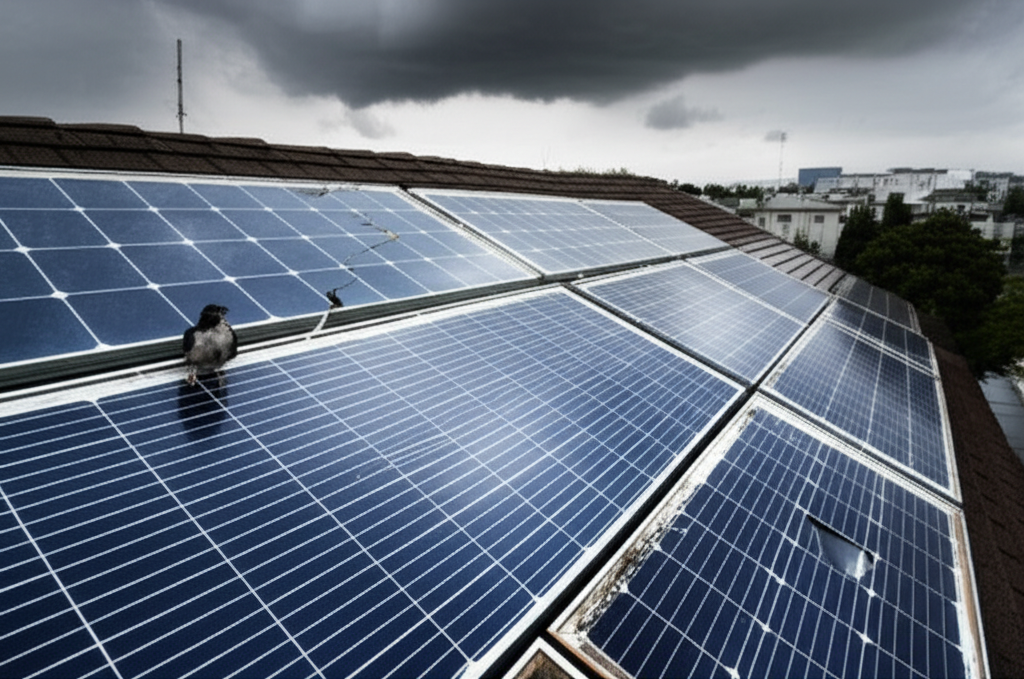Thinking about going solar? Great! You're joining a growing number of homeowners looking to harness the sun's power and save money. But what if your solar panels aren't performing as expected? What if you're still stuck with hefty electricity bills? The truth is, a poorly installed solar system can be a bigger headache than it's worth. Avoid these common, yet devastating, mistakes to ensure your solar investment pays off – literally.
1. Prioritizing Price Over Quality: Are You Really Saving Money?
It's tempting to go with the cheapest option, right? But when it comes to solar panels, cutting corners can cost you big time in the long run. Think of it like this: you're investing in a system designed to last for decades. Skimping on quality components or a qualified installer is a recipe for disaster.
What are the risks of cheap solar components?
- Reduced Performance: Cheaper panels often have lower efficiency ratings, meaning they generate less electricity.
- Increased Maintenance Costs: Low-quality components are more prone to failure, leading to frequent repairs and replacements.
- Shorter Lifespan: While high-quality panels can last 25 years or more, cheaper options might only last half that time.
- Electrical Hazards: Inferior wiring and components can pose a fire risk.
Why is a qualified installer crucial?
- Proper Installation: Experienced installers know how to properly mount panels, wire the system, and ensure everything is up to code.
- Water Damage Prevention: Incorrect installation can lead to leaks and water damage to your roof.
- Electrical Safety: Qualified electricians understand the electrical risks involved and can prevent electrocution or fires.
- Warranty Compliance: Many manufacturers require professional installation to validate the warranty.
The bottom line: Invest in quality components and a reputable installer. The upfront cost might be higher, but the long-term savings and peace of mind are well worth it.
2. Poor System Design: Is Your Solar System Optimized for Your Home?
Solar panel installation isn't just about slapping some panels on your roof. A well-designed system considers your specific energy needs, roof orientation, and potential shading issues. A poorly designed system can significantly reduce its efficiency and overall savings.
Common Solar Panel Design Flaws:
- Shading Issues: Panels installed in shaded areas will produce significantly less electricity. Even partial shading can drastically reduce output.
- Incorrect Orientation: The direction your panels face significantly impacts their energy production. In the Northern Hemisphere, south-facing panels generally produce the most electricity.
- Inappropriate Inverter Load: The inverter converts the DC electricity generated by the panels into AC electricity that your home can use. An improperly sized inverter can lead to inefficiencies.
- Roof Load Issues: Ensure your roof can handle the weight of the solar panels.
- Unnecessary Battery Installation: Batteries are great for off-grid systems or backup power, but they might not be necessary for grid-tied systems.
Key takeaway: Work with a solar company that offers a comprehensive system design tailored to your specific needs and property. Don't settle for a one-size-fits-all solution.
3. Inappropriate System Size: Are You Paying for Power You Don't Need?
Getting the right system size is crucial. An undersized system won't meet your energy needs, forcing you to rely on the grid and negating the benefits of solar. An oversized system, on the other hand, will generate more electricity than you can use, which you can sell back to the grid, but it's more efficient to use the power yourself. Plus, a larger system costs more upfront.
Factors to Consider When Determining System Size:
- Your Home's Size: Larger homes typically require larger solar systems.
- Energy Consumption: Analyze your past electricity bills to determine your average energy usage.
- Desired Bill Reduction: How much do you want to reduce your electricity bill? Do you want to eliminate it entirely?
- Future Plans: Are you planning to add an electric vehicle or other energy-intensive appliances in the future?
Pro Tip: Use an online solar system calculator to get an estimate of the system size you need. However, always consult with a qualified solar professional for a personalized assessment.
Frequently Asked Questions
Q: How much does solar panel installation typically cost?
A: The cost varies depending on the system size, panel quality, and installation complexity. However, the average cost for a residential solar panel system ranges from $15,000 to $25,000 before incentives and rebates.
Q: How long do solar panels last?
A: High-quality solar panels typically last 25-30 years, with many manufacturers offering warranties for that duration.
Q: What are the benefits of installing solar panels?
A: The benefits include reduced electricity bills, increased home value, environmental benefits (reduced carbon footprint), and energy independence.
Take Control of Your Energy Future
Investing in solar panels is a smart move, but only if done right. By avoiding these common mistakes – prioritizing price over quality, neglecting system design, and choosing the wrong system size – you can ensure your solar investment pays off handsomely for years to come. Don't let a bad installation experience sour you on the benefits of solar energy. Contact a reputable solar company today for a free consultation and start your journey towards clean, affordable, and sustainable power.

